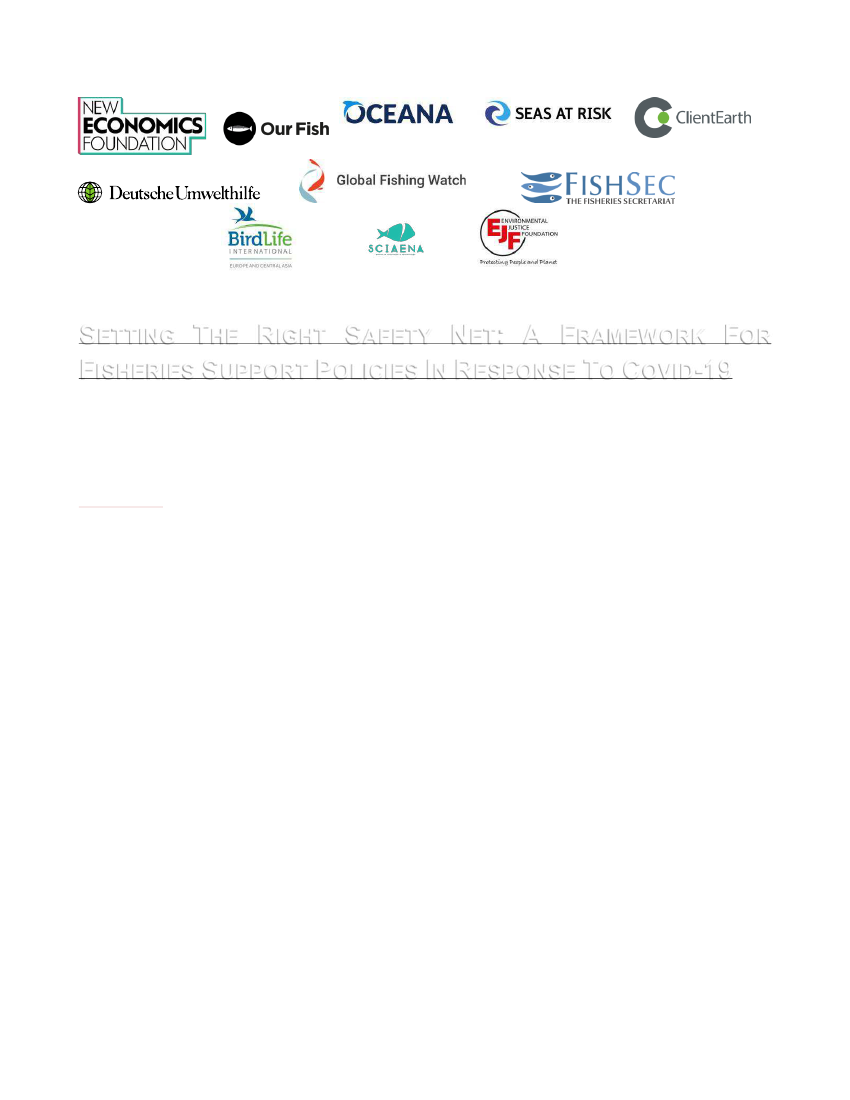
S
ETTING
T
HE
R
IGHT
S
AFETY
N
ET
: A F
RAMEWORK
F
OR
F
ISHERIES
S
UPPORT
P
OLICIES
I
N
R
ESPONSE
T
O
C
OVID
-19
Author: Griffin Carpenter, New Economics Foundation, [email protected]
April 2020
S
UMMARY
While disruption in seafood supply chains has brought temporary relief to wild fish populations, this should not
be celebrated. This environmental improvement has not come about due to any deliberate transition plan for
workers, nor will any environmental relief prove lasting once the public health crisis passes. Environmental
improvement is essential, but it should be achieved in a socially just manner.
This is where a principle-based approach is useful. The ten principles in this briefing establish a framework that
can be used to assess whether fisheries support policies in response to Covid-19 are appropriate to set a path
towards a healthier fishing sector, public, and marine environment. While some policies that have been
publicly advocated for violate one or more of the principles, other policies offer promise and should be pursued
with urgency.
Based on the ten principles, successful policies should:
●
support the acquisition of personal protective equipment such as masks and gloves;
●
enhance remote surveillance and non-observer monitoring programmes to ensure that essential data
is collected and that IUU fishing does not undercut law-abiding fishers and the marine environment
(e.g. cameras, electronic reporting systems);
●
improve traceability to ensure that efforts to develop new, localised supply chains can support EU
fishers and prevent IUU seafood from entering the supply chain, through digitisation;
●
ensure that lost fishing income due to the Covid-19 public health crisis is compensated for through
income support schemes (i.e. including the self-employed and fishers whose income is received
through a revenue share);
1